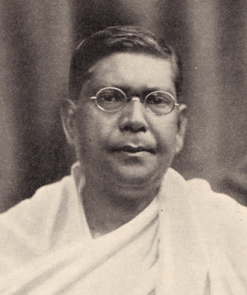A Quote by Thomas B. Macaulay
The passages in which Milton has alluded to his own circumstances are perhaps read more frequently, and with more interest, than any other lines in his poems.
Related Quotes
The whole gospel of Karl Marx can be summed up in a single sentence: Hate the man who is better off than you are. Never under any circumstances admit that his success may be due to his own efforts, to the productive contribution he has made to the whole community. Always attribute his success to the exploitation, the cheating, the more or less open robbery of others. Never under any circumstances admit that your own failure may be owing to your own weakness, or that the failure of anyone else may be due to his own defects - his laziness, incompetence, improvidence, or stupidity.
I find myself frequently depressed - perhaps more so than any other person here. And I find no better cure for that depression than to trust in the Lord with all my heart, and seek to realize afresh the power of the peace-speaking blood of Jesus, and His infinite love in dying upon the cross to put away all my transgressions.
The man who enters combat encased in solid armor plate, but lacking the essential of selfconfidence, is far more exposed and naked to death than the individual who subjects himself to battle shorn of any protection but his own skill, his own belief in himself and in his wingman. Righteousness is necessary for one's peace of mind, perhaps, but it is a poor substitute for agility . . . and a resolution to meet the enemy under any conditions and against any odds.
Any piece of knowledge which the pupil has himself acquired- any problem which he has himself solved, becomes, by virtue of the conquest, much more thoroughly his than it could else be. The preliminary activity of mind which his success implies, the concentration of thought necessary to it, and the excitement consequent on his triumph, conspire to register the facts in his memory in a way that no mere information heard from a teacher, or read in a schoolbook, can be registered.
[About Swami Vivekanada:] I am not saying that the message of the Swami was the final word in our nationalism... But it was tremendous - something with an undying glory of its own. If you read his books, if you read his lectures, you are struck at once with his love of humanity, his patriotism, not abstract patriotism which came to us from Europe but of different nature altogether a more living thing, something which we feel within ourselves when we read his writings.
Perhaps even more than constituted authority, it is social uniformity and sameness that harass the individual most. His very "uniqueness," "separateness" and "differentiation" make him an alien, not only in his native place, but even in his own home. Often more so than the foreign born who generally falls in with the established.
The BIBLE - banned, burned, beloved. More widely read, more frequently attacked than any other book in history. Generations of intellectuals have attempted to discredit it, dictators of every age have outlawed it and executed those who read it. Yet soldiers carry it into battle believing it more powerful than their weapons. Fragments of it smuggled into solitary prison cells have transformed ruthless killers into gentle saints
The person in peak-experiences feels himself, more than other times, to be the responsible, active, creating center of his activities and of his perceptions. He feels more like a prime-mover, more self-determined (rather than caused, determined, helpless, dependent, passive, weak, bossed). He feels himself to be his own boss, fully responsible, fully volitional, with more "free-will" than at other times, master of his fate, an agent.
I've got more in common with a three-toed sloth than I have with Winston Churchill. There is no easy comparison with any modern politician. The more you read about him, the more completely amazed you are about what he did - his energy, his literary fecundity, his ability to work - just unbelievable energy.
































